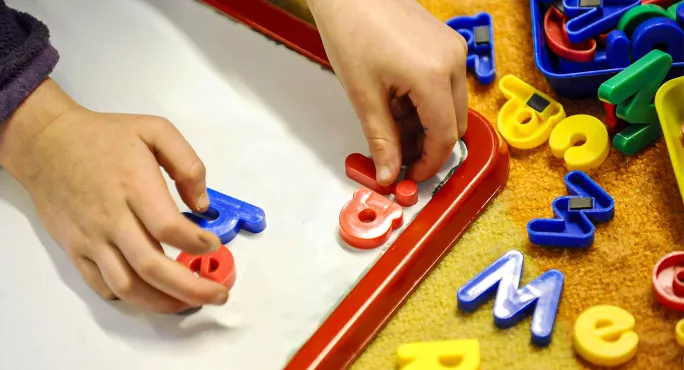Artificial intelligence (AI) should be kept out of early years and treated with great caution in primaries, a digital learning expert has told independent school leaders.
AI makes so many mistakes that it would be dangerous to rely on it when children are encountering critical concepts for the first time, said Professor Judy Robertson, chair in digital learning at the University of Edinburgh.
She told the recent annual conference of the Scottish Council of Independent Schools in Edinburgh that, while there were many potential benefits from applying AI in education, there are also a number of areas of learning where the best policy is to “keep AI out of the way”.
“Generative AI isn’t a database of facts, so it isn’t guaranteed to be accurate, and that’s really the whole crux of a lot of the problems with it,” said Professor Robertson.
AI tools, she explained, are built upon “data sets harvested from all over the internet, and what they do is they basically predict for any given piece of text, what’s likely to come next”.
These predictions, “simply based on what it’s read before”, may result in confident assertions that sound “really plausible” but are often “not factually true”.
AI falls short of standard pass marks
Even the best AI models generate paragraphs without mistakes only 35 per cent of the time, which Professor Robertson contrasted with the standard university undergraduate pass mark of 40 per cent.
“AI isn’t setting out to mislead you - it doesn’t have an agenda telling you to make mistakes, it has no agenda at all - it’s just a tool that makes statistical predictions,” she said.
However, “it could be used by somebody who has an agenda” and seeks to “amplify” deliberately false information - and to exploit AI in this way is to expose that AI tools “don’t have concepts, they don’t understand the things that we do”.
Professor Robertson added: “I think that if you have a tool that doesn’t have conceptual knowledge itself, then it doesn’t really have a place in assessing or teaching children’s conceptual understanding.”
She viewed this as particularly important in the early years and primary schools, “where we’re building a network of key big ideas and concepts”, adding: “We want human teachers to do that, to make sure that there aren’t mistakes that the AI has inadvertently brought in, so that they have a solid understanding - which they can then build on, perhaps using generative AI tools.”
Professor Robertson said: “In the early years, for me, learning is about play and it’s about exploration. And I don’t think that AI particularly has a place in that.”
AI should only be used “very carefully, with the support of a teacher, before our children begin to develop the metacognitive capacity to be fact-checking AI”.
Professor Robertson also believes that AI “doesn’t have a place in things like learning about personal social development or human relationships, developing your sense of self”.
She added: “I think there’s a whole lot of things that are really important for education as well, like learning outdoors, the importance of physical activity and sport, playing musical instruments, doing crafts - all very human things [in] which I think we can, quite simply, keep AI out the way.”
‘Generative AI is rubbish at maths’
Professor Robertson also talked about a joint project between her university and the Scottish Qualifications Authority, involving eight students from Castlebrae Community High and George Watson’s College, both in Edinburgh, and Dunblane High, who were trained as researchers to gauge peers’ views about AI.
They found, for example, pitfalls in the use of AI to complete homework. Professor Robertson stressed that AI should never be relied upon in maths homework.
“Generative AI is rubbish at maths - it can’t count,” said Professor Robertson, adding that pupils should be encouraged to use a calculator or spreadsheet instead.
Students were also found to be worried about: copyright theft by AI tools and the impact on creative artists; data privacy (“they really should be”); and the environmental impact of AI.
They were also frustrated in schools where teachers were using AI to save time and reduce workload, but students were not allowed to.
Professor Robertson, meanwhile, shared her concerns about “financial inequities” that may emerge as some children gain access to more expensive AI models while others do not.
For the latest in Scottish education delivered directly to your inbox, sign up for Tes’ The Week in Scotland newsletter





